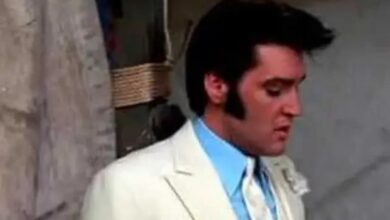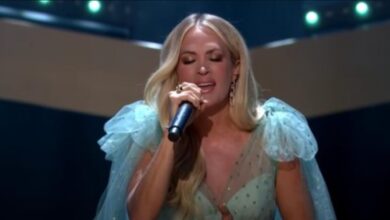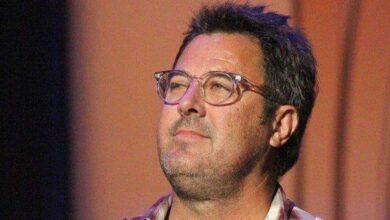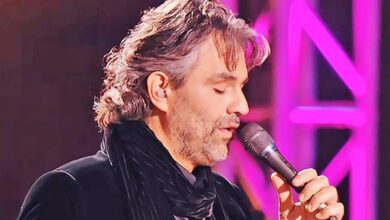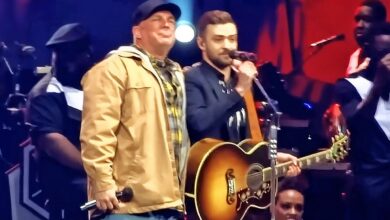Ben Haggard: His Father’s Echo in Music and Spirituality
Ben Haggard, the son of famed Country Singer Merle Haggard, has been instrumental in keeping his father’s legacy alive. Utilizing his YouTube channel as a platform, Ben shares a collection of personal performances, each imbued with the unmistakable essence of pure country music. Among these uploads, a standout piece is his heartfelt rendition of the classic hymn “Where No One Stands Alone.” This performance, characterized by its simplicity and authenticity, features Ben seated with just his guitar, delivering the hymn in a manner that truly honors the country tradition.
“Where No One Stands Alone” traces its origins to the 1950s and is the brainchild of hymn writer Thomas Mosie Lister. The song, with its poignant lyrics, delves into the existential theme of life’s emptiness without the presence of Jesus. Lister, recognized for his contributions to gospel music, was honored with inductions into the Gospel Music Hall of Fame in 1976 and the Southern Gospel Music Association in 1997, reflecting the significant impact of his work on these genres.
The hymn’s journey into the hearts of music lovers began with its first commercial recording by the Statesmen Quartet in 1955. This initial rendition paved the way for other Southern Gospel groups to interpret the song in their unique styles. Notable among these were the Blackwood Bros. Quartet in 1956, The Jordanaires in 1959, and the Cathedral Quartet in 1966. Each of these groups brought their distinct flavor to the hymn, further cementing its place in the gospel music tradition.
Moreover, “Where No One Stands Alone” didn’t just resonate within the gospel music sphere; it also caught the attention of mainstream country artists who incorporated it into their albums. This hymn was covered by several country music luminaries, including Don Gibson in 1958, Loretta Lynn in 1965, Elvis Presley accompanied by The Jordanaires and The Imperials Quartet in 1967, Ferlin Husky in 1968, and Merle Haggard himself in 1981. Alison Krauss and The Cox Family also added their rendition in 1994, showcasing the hymn’s enduring appeal across different eras and artists in the country music scene.
